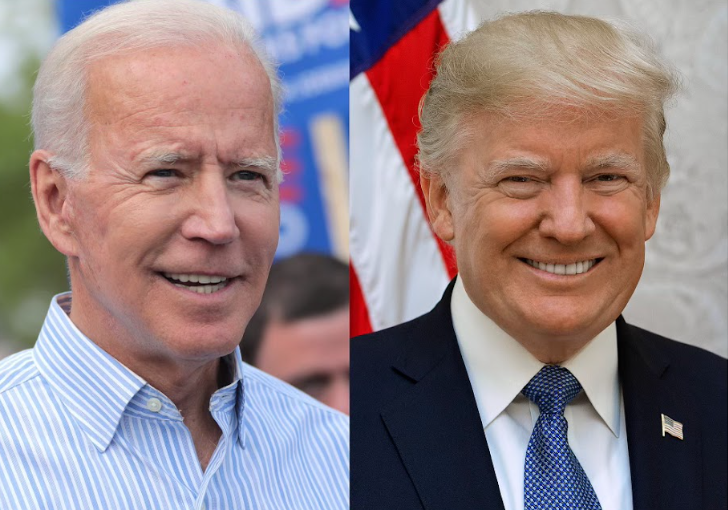On Nov. 5, Americans will come together to vote for the next president of the United States. While most people are familiar with the polarizing matchup of the primary candidates, there are other players involved that could shape the way the country looks for the next four years.
The election process is a little complicated, so here is a quick overview of the full process for first time voters: each party has a few candidates that are running for office. The first position the candidates are running for is to become each party’s primary nominee. This vote happens through primaries and caucuses, which are two forms of election that occur in each state from January to June of the election year. After polling the results, from July to early September the parties hold national conventions, where party delegates choose the candidate whose name is going to be on the final ballot. In September and October, the presidential debates are held, where the candidates go head-to-head on various policy issues. Finally, on Nov. 5, the presidential election takes place.
The way that the president is elected is also somewhat complicated. While the popular vote is important, the decision ultimately comes down to that of a board of electors, chosen by the state political parties and elected by voters during the popular vote, who base their decision on the popular vote, which is the count of every ballot cast by voters. The number of electors per state is decided by the number of senators per state (two) plus the number of representatives per state (based on population). For every state except Maine and Nebraska, all of the states electoral votes go to whichever party wins the plurality in that state. For the national election, a candidate needs to win at least 270 of the nation’s 538 electoral votes in order to win the presidency.
As for the candidates themselves, the incumbent, or the politician currently residing in office, is President Joe Biden, a Democrat, and his Vice President Kamala Harris. Biden is the 47th president of the United States and has been working in politics for roughly 40 years, raising many questions amongst voters about the fact that he is 81 and officially the oldest person to occupy the oval office. President Biden is the favorite to win the Democratic nominee for his renovated yet classic platform of pushing for freedom and equality in the country. In his campaign ad, Biden specifically references the January 6 attack of 2021 and the recent Roe v. Wade decision, which removed the constitutional right to abortion and left the decision to state legislatures. Even though President Biden won in the recent South Carolina Democratic primary, he is not the only Blue candidate to consider.
Democrat nominee Marianne Williamson, who is also running for office, is a renowned author who has written over 15 books, four of which are New York Times Best Sellers. Along with her writing achievements, she is a political activist and religious leader. Williamson’s platform is simple yet effective, with her tagline being, “This is not a time for politics as usual, for politics as usual has failed us. And to lead us at this time of peril, the best man for the job is a woman.” Critics of Williamson have commented mostly on her lack of true political experience, however she sees that as “not an obstacle but rather an asset.”
Dean Phillips is the last Democratic candidate, and despite being surpassed by Williamson in the recent South Carolina primaries, he still remains relevant to voters. Phillips is and has been a Minnesota representative since 2019, which means he has a respectable amount of political experience. His platforms are simple and resonate with Democratic voters around the country. Even if President Biden is the Democratic candidate again, Williamson and Phillips will surely stick around for future election cycles.
Opposite of President Biden is former President Donald Trump, the leading Republican candidate. President Trump won the election in 2016, but since then, he has been surrounded by frequent controversy. He became the fifth president in United States history to win an election despite losing the popular vote, and the third president to be impeached. He also was embroiled in the Jan. 6 insurrection of 2021 and has been indicted four separate times for varying allegations. Despite all this, Trump is still the far and away favorite to win the Republican nomination due to his conservative policies that are attractive to like-minded voters. He is continuing the use of his well known “Make America Great Again” tagline, with a high emphasis on foreign policy. He even earned the endorsement of Florida governor Ron Desantis, who surprisingly dropped out of the race despite his popularity with red voters.
The only other Republican candidate that has a chance of winning the Republican party is Nikki Haley. Haley has plenty of political experience both as the governor of South Carolina and as a U.S. ambassador during the Trump administration. Despite Trump still having a strong lead over her in the polls, Haley offers Republicans a new face and style while keeping traditional values.
As of right now, a Biden versus Trump rematch seems likely. However, the ballot is not set, and no candidate should be counted out quite yet. Given the polarizing nature of politics in the country today, chances are this election will be as contentious as ever.
Of course, this is not an exhaustive list of every candidate’s policies. All voters should make sure to research all candidates on the ballot before casting a vote this November.




